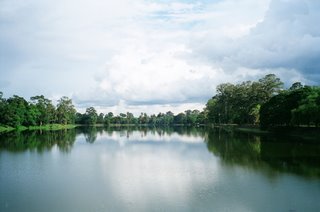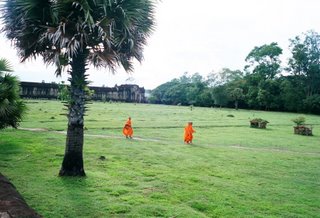Saigon
Je pars à Saigon demain matin (départ du bus à 5h30... va falloir se coucher tôt !)
RDV à tous lundi avec un tampon de plus sur mon passeport !
Les merveilleuses aventures de votre serviteur au pays des Khmers
Je pars à Saigon demain matin (départ du bus à 5h30... va falloir se coucher tôt !)
Il y a quelque part ma tronche, en train de faire semblant de travailler, comme
Only today dit I take a serious look at the first two rolls which I shot in Angkor with Noémi two weeks ago.


 More soon, I have to work a little bit...
More soon, I have to work a little bit...
As I probably wrote, Ratanakiri was really an experience, within my experience of Cambodia and there is a lot I would like to write about Ratanakiri.
Je suis un peu gêné car je souhaite changer le mode de fonctionnement avec mon collègue khmer, Bunchheang, de façon à ce qu'il prenne maintenant les responsabilités - pour que je ne sois que son assistant : inversion des rôles.
I didn't remember it as so tiring.
À 15 km au nord Kratie (prononcez Kratcheh), une promenade sur l'eau permet de voir les dauphins du Mékong, qui sont des dauphins "Irrawaddy", espèce menacée par les filets de pêche et la pêche à l'explosif.
Bonjour à tous,
I was always told that electricity in Cambodia is very expensive and that's why no industry can flourish here. I tried more than once to compare prices with France and could not get a clear view because of pricing options and exchange rates.
First of all let me apologize because it will be a lot of words and no pictures: I didn't take my camera with me (two heavy and the weather is so humid now I was afraid I would hae to lose too much time protecting it from the rain).
Noémi and I are back from Ratanakiri which was a great experience! Beautiful landscapes, meeting with an NGO called CFI which gave us information about the "land issue" (I'll write more about it soon), sleeping in a very charming Lodge called Terres Rouges and enjoying the crossing of rivers with no bridges...